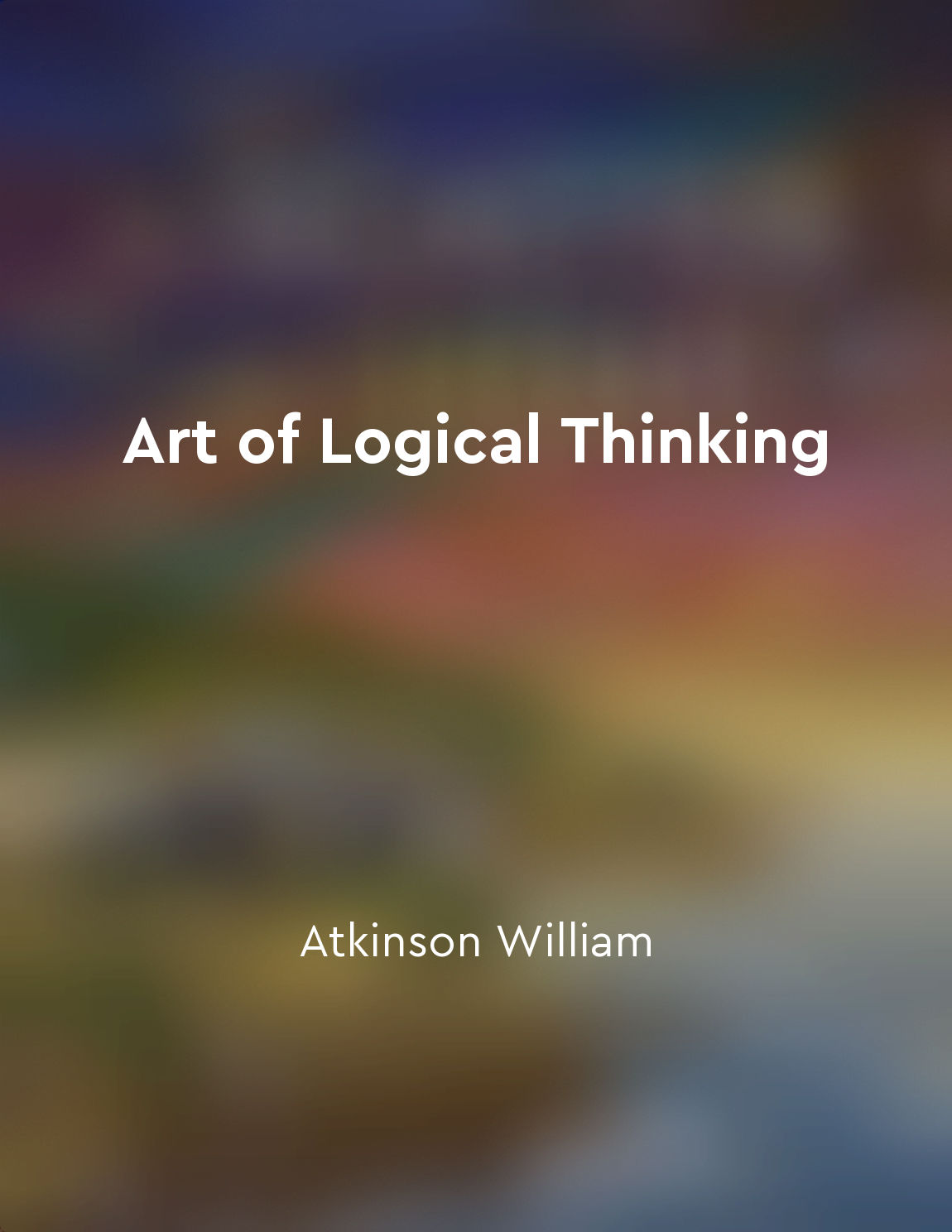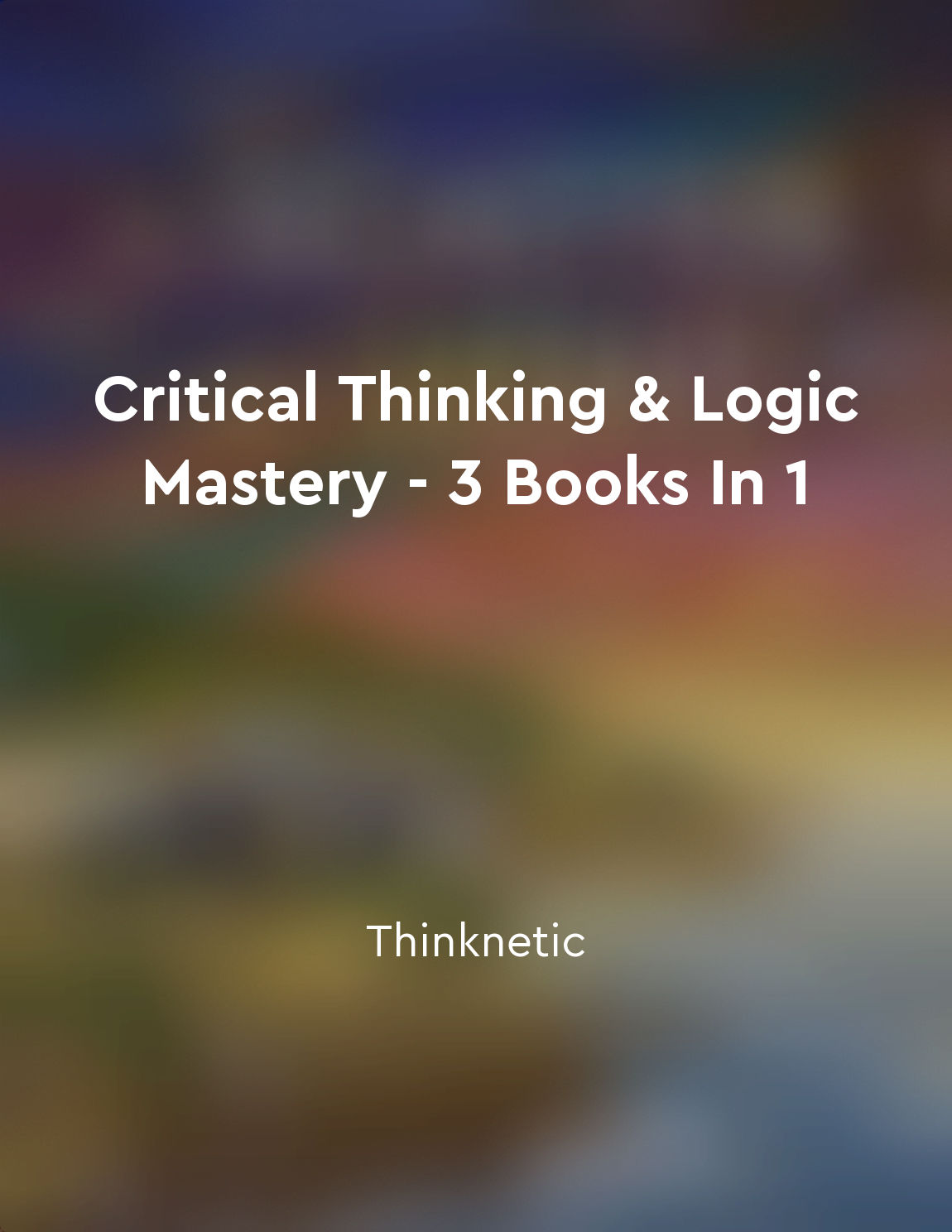Audio available in app
Evaluating sources is crucial for critical analysis from "summary" of Critical Thinking & Logic Mastery - 3 Books In 1 by Thinknetic
When it comes to critical analysis, evaluating sources plays a significant role in the process. The information we use as evidence or support for our arguments can greatly impact the credibility and validity of our conclusions. Without assessing the reliability of our sources, we run the risk of basing our analysis on faulty or biased information. One key aspect of evaluating sources is considering the expertise and authority of the author or organization behind the information. Are they qualified to speak on the topic? Do they have a reputation for accuracy and integrity? Understanding the background and qualifications of the source can help us determine the trustworthiness of the information they provide. Another important factor to consider when evaluating sources is the objectivity and bias present in the information. Is the source presenting a balanced view of the subject, or is there a clear agenda or bias at play? Being able to identify potential biases in our sources allows us to approach the information with a critical eye and consider alternative perspectives. Additionally, it is crucial to assess the currency and relevance of the information we use in our analysis. Is the source up-to-date and reflective of current knowledge and understanding? Does the information directly relate to the topic at hand, or is it outdated or tangential? Ensuring that our sources are current and relevant helps us build a strong foundation for our critical analysis.- Evaluating sources is an essential step in the process of critical analysis. By critically assessing the expertise, objectivity, bias, currency, and relevance of the information we use, we can ensure that our conclusions are well-founded and supported by reliable evidence. Taking the time to carefully evaluate our sources can greatly enhance the quality and credibility of our critical analysis.
Similar Posts
Emphasize the importance of reading as a lifelong learning process
Reading is not just a one-time activity; it is a lifelong process that continues to shape our understanding and knowledge throu...

Educational resources
Educational resources refer to a wide range of materials and tools that are designed to support teaching and learning in educat...
Challenge your own beliefs and opinions
The human mind is a powerful entity, capable of shaping our reality based on the beliefs and opinions we hold. These beliefs an...
Persistence is key to achieving success in math
To master math, one must understand the importance of persistence. Math is not a subject that can be conquered overnight. It re...
Cultivate curiosity and openmindedness
To think well, one must cultivate the quality of curiosity and open-mindedness. Curiosity is the desire to learn, to know, to u...
They engage in selfreflection
Engaging in self-reflection is a crucial aspect of critical thinking. It involves taking the time to pause and consider one's o...
Morality does not require religious guidance
Morality is a concept that has been deeply ingrained in society for centuries. It has been believed that without the guidance o...
Celebrate progress and achievements
When you make progress in achieving your goals, it's important to take the time to acknowledge and celebrate your accomplishmen...
Seek feedback and constructive criticism to improve thinking
It is crucial to seek feedback and constructive criticism as a means to enhance our thinking abilities. By exposing ourselves t...

Reflecting on past arguments aids future logic
When it comes to honing our logical thinking skills, one of the most effective strategies we can employ is reflecting on past a...


